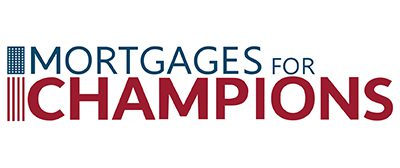
Mortgage rates are at an all-time low and with the availability of low- and no-down payment loans, it’s no wonder why it’s easy to be a homeowner! Due to this, it is a seller’s market. However, a prepared buyer will most likely get the house, especially of the seller requests a “quick closing”. If you are able to close on a home in 45 days or less, you can improve your chances of getting your new home. And if you are able to close in 30 days or less, you will REALLY increase your chances of owning your new home. Closing on a home in 30 days or less is possible, but you MUST be prepared. If you want to close quickly, follow these simple tips.
- Paperwork: When you are buying a home, the longest part of the transaction that can affect your closing date is the documentation requests your mortgage lender asks for and how fast you respond to them. If you want, ask your mortgage loan originator ahead of time what paperwork they will need and have them ready. Most of the paperwork mortgage lenders will ask for can take as little as 30 minutes. However, there are times where it can take up to two weeks or more. It depends on the paperwork that is being requested. Most common paperwork includes W-2 statements and federal tax returns from the last 2 years, your last 2 recent pay stubs, and your last two bank statements. Also have a copy of your driver’s license and know the social security number for yourself and anyone else who will be on the loan with you. Also, if you have a unique credit situation like foreclosure, child support, alimony payments, or gift funds from a friend or relative, have that relative documentation ready. Gathering the right paperwork will be the most time-consuming step in a mortgage approval process. Also, most documentation can be scanned and sent to them. Consider scanning them and having them ready for you to send out in advance.
- DON’T keep secrets from your mortgage loan originator: You need to be honest with your mortgage loan originator; even if you are worried it will harm your approval. Why? One, if you are withholding information from your mortgage application, your application could be constituted as loan fraud, which is worse than not getting your home loan approved. Two, your mortgage loan originator will typically uncover what you are trying to “hide” anyways. Part of the mortgage approval process is:
- A credit check is performed. This check will list your creditors, debts, and judgments.
- An occupancy test is performed by the underwriter to determine if you live where you really say you do.
- An employment check is done to verify your job status and income.
Public records are also scoured too if the above checks fail to include information the lender would need as a part of your approval. With the above information, if the underwriter uncovers inconsistencies between your application and the data gathered, they will ask you to explain the discrepancy in details or else your loan will be denied.
Your lender will uncover whatever information you elect to withhold – so make sure you share everything!
- Use Pre-Approvals to speed closing time: Mortgage pre-approvals are the most under-used tools to speed a purchase closing. If you have a pre-approval already in hand as of the date of the offer, it can reduce your loan closing time by one week or more! Pre-approvals are “dry runs”; approvals based on an expected set of loan criteria which will eventually go to closing. During the pre-approval process, your mortgage loan originator will take a complete loan application that includes income and asset verification, and they will account find the perfect loan for your credit score and if you need a co-signer or not. The only thing missing from a pre-approval is the physical property address of the home that is being purchased. To replace the lack of the address, your originator will use dummy information based on probable loan data that includes purchase prices, sample real estate tax bills common for the area, and a sample of homeowners insurance policies and/or homeowners association assessments, where applicable.
When the loan is pre-approved, you can move immediately from “writing the contract” to “underwriting the loan”.
If you are ready to take the first step of owning your home, check our web site or contact us at 973-577-7008.

